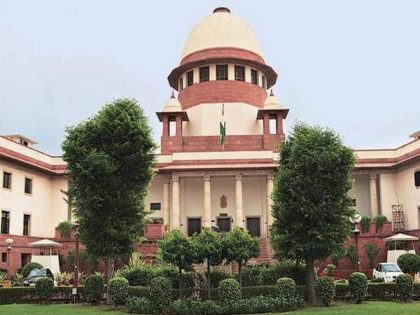Bulldozer Action: Supreme Court To Pronounce Judgment Today, Pan-India Guidelines Expected
By Lokmat English Desk | Updated: November 13, 2024 08:51 IST2024-11-13T08:50:09+5:302024-11-13T08:51:24+5:30
The Supreme Court of India will announce its judgment and issue guidelines on "bulldozer action" (property demolition) carried out ...

Bulldozer Action: Supreme Court To Pronounce Judgment Today, Pan-India Guidelines Expected
The Supreme Court of India will announce its judgment and issue guidelines on "bulldozer action" (property demolition) carried out by authorities, primarily in BJP-ruled states, on Wednesday, November 13. A bench comprising Justices B.R. Gavai and K.V. Vishwanathan will deliver the verdict.
The apex court had reserved its order on October 1 after hearing the case. The upcoming pan-India guidelines will apply to the demolition of any property. Previously, on September 17, the court imposed a temporary ban on "bulldozer action," which remains in effect.
While reserving the decision, the court stated that its focus would be on legal solutions already mentioned in the law. The court stated that any actions taken should strictly adhere to regulations, for which it will issue specific guidelines. It clarified that no protection would be extended to illegal constructions on roads, footpaths, or similar areas, and that it would not issue orders that could aid systematic encroachers.
Several petitioners, including Jamiat Ulema-e-Hind, argued that demolitions are being conducted across the country in violation of due process. Petitioners claimed that, in some instances, authorities demolish properties without notice, denying individuals a chance to respond. The court stated during hearings that criminal accusations cannot justify demolishing someone's property, labelling this practice as "bulldozer justice."
Solicitor General Tushar Mehta, representing the state governments of Uttar Pradesh, Madhya Pradesh, and Rajasthan, argued in favour of adherence to municipal rules. He supported implementing a system for notifying individuals prior to any demolition action. According to his argument, those responsible for illegal construction should be granted a 10-day period to rectify their property.
Solicitor General Tushar Mehta also argued that the petitioners were attempting to create an impression that the state governments were targeting only one community. In response, Justice Vishwanathan noted, “If there are two illegal structures in an area, and you demolish only one based on a crime allegation, then questions will naturally arise.” Justice Gavai added, “We live in a secular system. Action should be taken against illegal construction, whether it belongs to a Hindu or a Muslim.”
The judges emphasized that it is improper to demolish someone’s house without due process. They suggested that a 10-15 day notice period should be given, allowing individuals an opportunity to rectify any construction issues. If improvements are not feasible, demolition should be considered only as a last resort. Furthermore, the court stated that people should be given adequate notice before any demolition action, as families residing in a location for years cannot immediately arrange alternative housing. The judges also remarked that allowing time before demolition would enable individuals to seek legal recourse if necessary.
Open in app